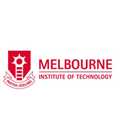Master of Professional Accounting (Melbourne)
- Posted by Melbourne Institute of Technology
- Home
- Courses
- Melbourne Institute of Technology
- Master of Professional Accounting (Melbourne)
Master of Professional Accounting (Melbourne)
A Master of Professional Accounting is a ticket to the industry of your choice. Graduates find employment in corporate accounting, financial accounting/reporting, managerial accounting, auditing and assurance, taxation, investments and across all areas of commerce, industry, and government. Our graduates have found jobs at leading businesses including KPMG, NAB Banks…
Categories
COURSE DESCRIPTION
A Master of Professional Accounting is a ticket to the industry of your choice. Graduates find employment in corporate accounting, financial accounting/reporting, managerial accounting, auditing and assurance, taxation, investments and across all areas of commerce, industry, and government.
Our graduates have found jobs at leading businesses including KPMG, NAB Banks and Commonwealth Banks. When you study accounting, you open up a range of opportunities at the heart of business.
Career roles include:
Graduate Accountant
Graduate Auditor
Financial Analyst or Consultant
Finance Manager
Network Analyst
Investment Analyst/Consultant
Investment Manager
Business Analyst/Consultant
Corporate Secretary
Taxation Consultant
Systems Accountant
Forensic Accountant
COURSE STRUCTURE.
The Master of Professional Accounting course comprises 14 core units and 2 elective units (240 credit points). Each unit is worth 15 credit points, and full-time students undertake four units per trimester.
As you progress through your course, your knowledge will become more focussed on your chosen course. This is put into action in your final year industry-based project.
LEARNING OUTCOMES
The Master of Professional Accounting aims to provide graduates who will:
Possess a body of knowledge in accounting that demonstrates a thorough understanding of the discipline and its application
Possess the technical knowledge, competency and skills required to become members of the relevant professional bodies
Be capable of independent and life-long learning
Exercise critical thinking and problem-solving skills
Be able to analyse and adapt knowledge to different contexts
Be ethically aware and possess appropriate professional skills
Be culturally aware and able to adapt to diverse environments
Demonstrate initiative and professional responsibility
REQUIREMENTS
To qualify for entry into the MPA, you need to have:
An Australian Bachelor degree or equivalent qualification in any discipline.
IELTS (Academic) Overall score 6.5 (no band less than 6.0), or equivalent.
TOEFL iBT – 79–93 with minimum scores: Reading 13, Listening 12, Speaking 18, Writing 21
PTE Academic – Overall 58 (no band less than 50)
Cambridge CAE – CAE Score of 176 (no band less than 169)
EDUCATIONAL INSTITUTION
Established in 1996, MIT has provided degrees in leading industries since its inception. MIT offers undergraduate and postgraduate courses in business, business analytics, networking, cyber security, data analytics and software and telecommunications engineering. MIT’s courses include tactical industry projects and internships. The institute has relationships with industries of all sizes and types, both profit and not-for-profit. MIT trains students in specialised skills that are in demand in the workplace so that graduates enter the workforce feeling confident they can succeed in a competitive environment. Students at MIT are guaranteed hands-on industry experience in every degree. Student care at MIT goes beyond what happens in the classroom. Student at MIT are given the support and taught the skills required to succeed in the real world. MIT’s English classes teach students to use English in a variety of social and personal situations.
Established in 1996, MIT has provided degrees in leading industries since its inception. MIT offers undergraduate and postgraduate courses in business, business analytics, networking, cyber security, data analytics and software and telecommunications engineering. MIT’s courses include tactical industry projects and internships. The institute has relationships with industries of all sizes and types, both profit and not-for-profit. MIT trains students in specialised skills that are in demand in the workplace so that graduates enter the workforce feeling confident they can succeed in a competitive environment. Students at MIT are guaranteed hands-on industry experience in every degree. Student care at MIT goes beyond what happens in the classroom. Student at MIT are given the support and taught the skills required to succeed in the real world. MIT’s English classes teach students to use English in a variety of social and personal situations.




